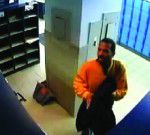Caught in the act

February 21, 2008
On the day of love, tragedy struck.
On Feb. 14, Valentine’s Day, Stephen Kazmierczak, 27, entered Cole Hall, a lecture hall on the campus of Northern Illinois University, in DeKalb, Ill., and opened-fire. Four students were pronounced dead at the scene, while two more died in the hospital. Moments later Kazmierczak turned the gun on himself. Eighteen students were hospitalized as a result of the shooting. One of the injured was discharged, but there is no word on the rest at time of press. Kazmierczak was a former graduate student at Northern Illinois. A motive has yet to be determined.
The shooting at NIU is the second serious shooting on a college campus that has received national attention in 10 months. The Virginia Tech massacre, which occurred in April, left 33 dead. Blacksburg, Va., the home of Virginia Tech, is still coping with the loss.
Despite the location of these tragedies, Villanova students are reminded that they are not immune to danger. In light of the recent indecent exposure incidents and thefts, as well as shots being fired in Pike Lot in November (none of the instances are believed to be the work of Villanova students), students are reminded that the Villanova bubble has seemingly burst.
Villanova University is an open-campus with easy entry to Philadelphia and surrounding areas. Convenience comes at a price, however, as the R5 and R100 SEPTA stations, as well as Lancaster Avenue, which runs through the heart of campus, allow lightly restricted access to anyone who wishes to infiltrate campus.
“People need to take precautions,” said David Tedjeske, director of Public Safety. “The campus is as safe as the community wants it to be.”
Tedjeske noted the importance of community awareness and a strong relationship with surrounding police departments, especially that of Radnor township.
“Public Safety has a very close working relationship with the Radnor Township Police Departments. Radnor provides excellent service to the University, both in terms of immediate response to emergency situations, as well as follow up on matters requiring a more lengthy investigation,” Tedjeske said.
Radnor Police have been involved in the hunt for the man accused of exposing himself to female students earlier this semester. The incident occurred Jan. 31 in the Mendel/Tolentine area and is still under investigation. In response to the report, Public Safety notified students of the individual, who was described in an e-mail as “a white male, approximately 40 years old, medium build with long grayish brown hair.”
The e-mail was sent several hours after the incident.
Public Safety stated it received a good description of the man, as well as a photo of the individual, and attempted to raise awareness through the e-mail messages. The offender has not been seen since the original incident.
The thefts are a similar situation. It was determined that those responsible for the thefts in Kennedy Hall, Connelly Center and the Jake Nevin Field House early last semester were not Villanova students.
“They are looking for bookbags, cash, things of immediate value,” Tedjeske said.
One individual has been apprehended by the Radnor Police Department. Radnor believes the individual is linked to the thefts.
In order to prevent future incidents from occurring, Public Safety has intensified security throughout campus: officers patrol by vehicle, bike and on-foot and are stationed at fixed gate positions near Bartley Hall and the West Campus apartments to ensure that outsiders remain outside.
Public Safety also offers an escort service that is available during nighttime hours.
This service is an alternative to walking the campus alone at night.
The University also replaced all campus emergency phones this past summer. Public Safety tests these phones weekly.
Despite the increased presence of Public Safety officers, the WildCard access system and the new NOVA Alert notification system remain the most vital aspects of security on campus.
“The University has the capability through the WildCard system to control access to all campus residence halls and many academic and administrative buildings, as well as to several campus entrance gates.
“Although this is an access control system, rather than a security system, it can regulate and monitor what buildings and rooms cardholders may enter,” Tedjeske said.
NOVA Alert became fully functional in September, illustrating its value as a means of quickly notifying students of present danger during an incident in November when shots were fired.
“Text messaging is the fastest way to quickly get the word out about emergency situations that require students to take immediate action,” Tedjeske said.
Regardless of Public Safety’s actions, however, security on campus boils down to awareness. Junior Caitlin DeBarbrie realizes that.
“I still feel safe on campus, but am more aware of my surroundings, especially if I am walking around campus alone at night,” DeBarbrie said. “I think Public Safety is doing a good job overall. I think the new notification system through text messages and e-mail is great.”
Despite this recent string of more serious crimes by Villanova standards, Tedjeske maintained that the most common mishaps that occur on campus relate to parking and liquor offences.










